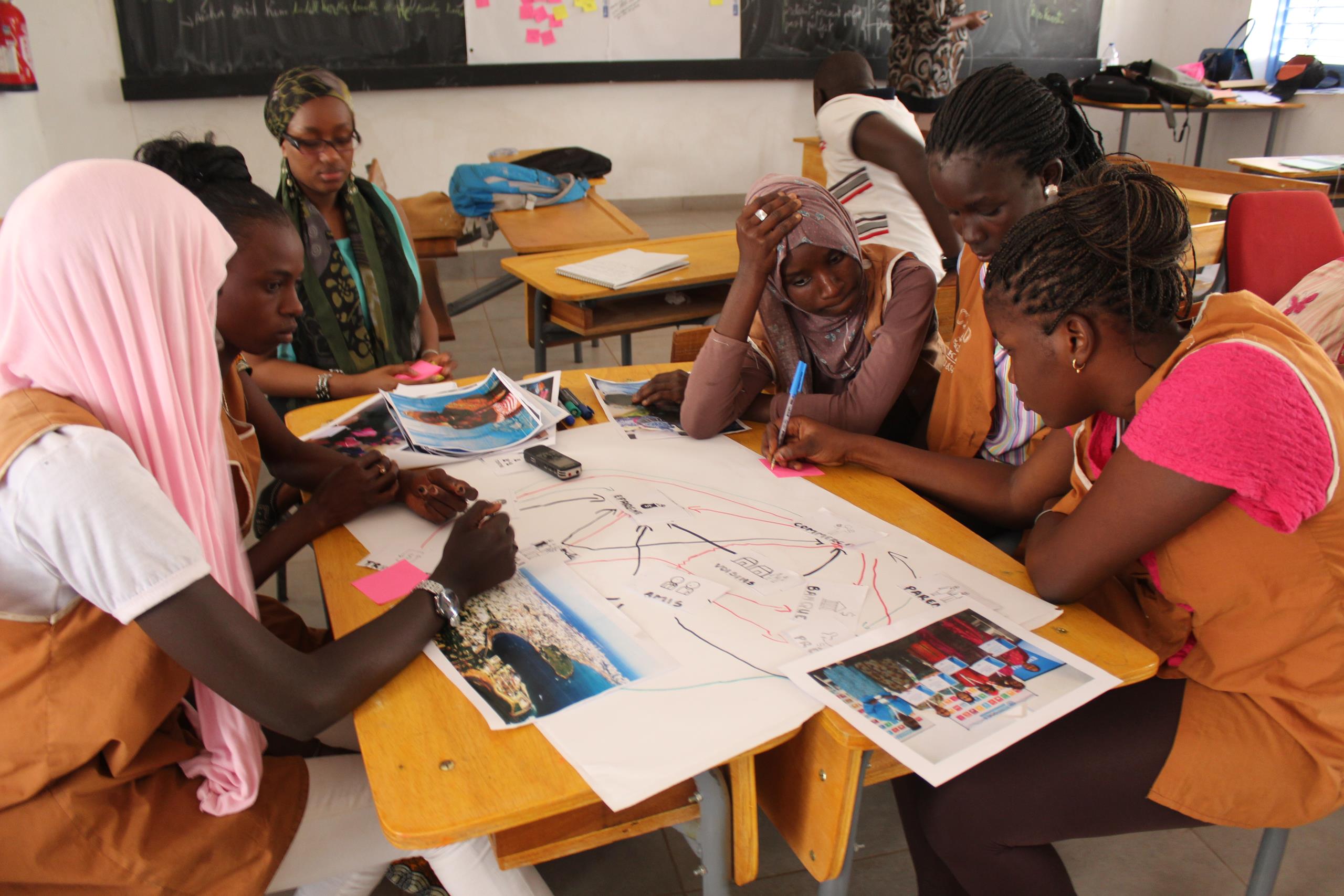The Scale of the Challenge
Women and girls in Senegal face barriers in the supply of and in their demand for financial products and services, the wider enabling environment as well as in their socio-cultural context. On the supply side, the low number of financial access points disproportionately impacts women.
This is in a context where women and girls’ mobility is constrained due to socio-cultural norms whereby they undertake the majority of unpaid care responsibilities in the household, and may face restrictions in leaving the house without a male relatives’ permission. For instance, 40.6% of women aged 15 to 49 find it normal to be beaten by their husband if they leave the house without asking for permission. While mobile money could overcome these mobility and access point constraints, barriers remain related to access to a mobile and knowledge of mobile money accounts. Further, low literacy rates among women, (43.8%) hamper their digital literacy skills.
In terms of the enabling environment, social norms related to inheritance and land and property ownership result in the majority of women in Senegal at 85% (aged 15-49) not owning a house or land that could be used as collateral to access credit. For example, in the agricultural sector, women account for 70% of the labour force, but they hold only 3% of cultivated land. Consequently, women resort to informal mechanisms for credit access and savings, which lack any form of consumer protection.
85% of women
do not own a house or land
Barriers such as these, collectively limit women’s access, usage and agency over financial products and services in ways that restrict their economic empowerment. Indeed, Senegalese women have a 45% labour force participation rate. Consequently, there is a gender gap of 11% with women disproportionately excluded from the formal financial system, mainly due to women’s lack of access to a bank or mobile money account.


